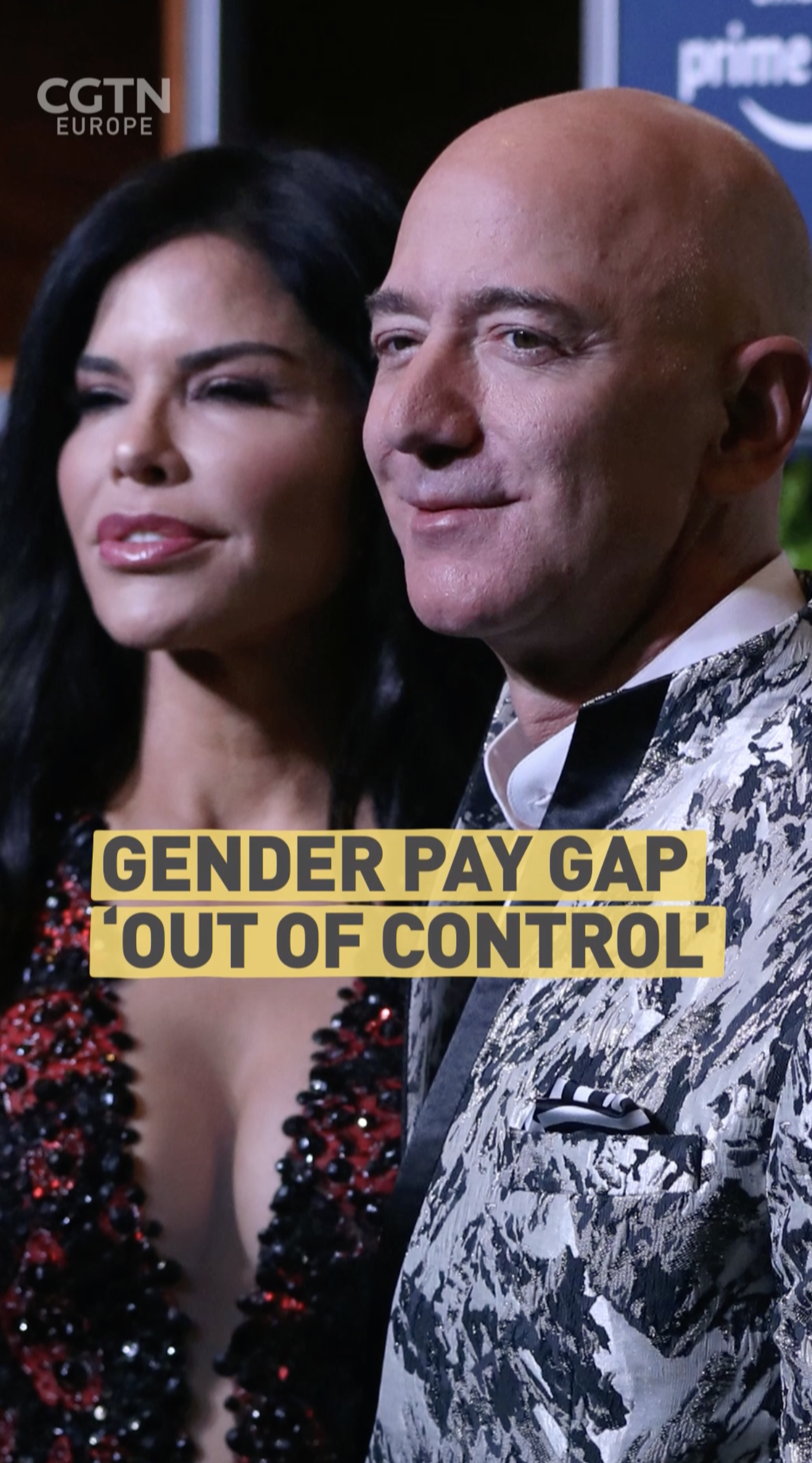00:56

The 22 richest men in the world have more wealth than all the women in Africa combined, according to a new report from Oxfam, aimed at highlighting global inequality and what it dubs "sexist economies."
The figures are taken from Forbes' March 2019 billionaire list, which last year was topped by Jeff Bezos of Amazon, Bill Gates of Microsoft, and the American investor Warren Buffet. The UN estimates that there are 326 million women in Africa aged 20 and over.
Oxfam's annual inequality report, called Time to Care, was released to coincide with the start of the World Economic Forum (WEF) in Davos, Switzerland and lays out a slew of facts that call attention to the growing gap between the world's wealthiest and poorest people.
Keys findings include:
• The world's richest one percent are worth twice as much as 6.9 billion people.
• The number of billionaires around the world has doubled over the past 10 years.
• The world's 2,153 billionaires have more wealth than 4.6 billion people.

Amazon founder Jeff Bezos topped Forbes' list of billionaires in March 2019 (Credit: Reuters)
Amazon founder Jeff Bezos topped Forbes' list of billionaires in March 2019 (Credit: Reuters)
While the report looks at inequality in general, it also homes in particularly on gender disparity, stating that sexism is "fueling the inequality crisis – enabling a wealthy elite to accumulate vast fortunes at the expense of ordinary people and particularly poor women and girls."
Oxfam India CEO Amitabh Behar, who helped launch the report, will represent the charity in Davos this week, hoping to draw attention to the issue.
"Our broken economies are lining the pockets of billionaires and big business at the expense of ordinary men and women. No wonder people are starting to question whether billionaires should even exist," Behar said.
"Women and girls are among those who benefit least from today's economic system. They spend billions of hours cooking, cleaning and caring for children and the elderly. Unpaid care work is the 'hidden engine' that keeps the wheels of our economies, businesses and societies moving," added Behar.
"It is driven by women who often have little time to get an education, earn a decent living or have a say in how our societies are run, and who are therefore trapped at the bottom of the economy."

Oxfam's annual inequality report, 'Time to Care', was released to coincide with the start of the World Economic Forum (WEF) in Davos, Switzerland (pictured) (Credit: AP)
Oxfam's annual inequality report, 'Time to Care', was released to coincide with the start of the World Economic Forum (WEF) in Davos, Switzerland (pictured) (Credit: AP)
The document reports that women and girls average around 12.5 billion hours of unpaid care work every day, saying that if remunerated for their work, the contribution to the worldwide economy would be equal to $10.8 trillion a year – three times that of the contribution of the global tech industry.
"Governments created the inequality crisis – they must act now to end it," said Behar.
"They must pass laws to tackle the huge amount of care work done by women and girls, and ensure that people who do some of the most important jobs in our society – caring for our parents, our children and the most vulnerable – are paid a living wage," she added.
Oxfam estimates that 2.3 billion people will be in need of care by 2030, up by 200 million since 2015 and with climate change expected to push numbers even higher.
The report added that the best way to tackle the inequality crisis and the gender pay gap would be to get governments to properly tax companies with high revenues. It estimates that if the richest one percent put in 0.5 percent extra tax over the next decade, it would equal the investment needed to create 117 million jobs in care, health, and education industries.
According to Behar, the case is clear: "Governments must prioritize care as being as important as all other sectors in order to build more human economies that work for everyone, not just a fortunate few."